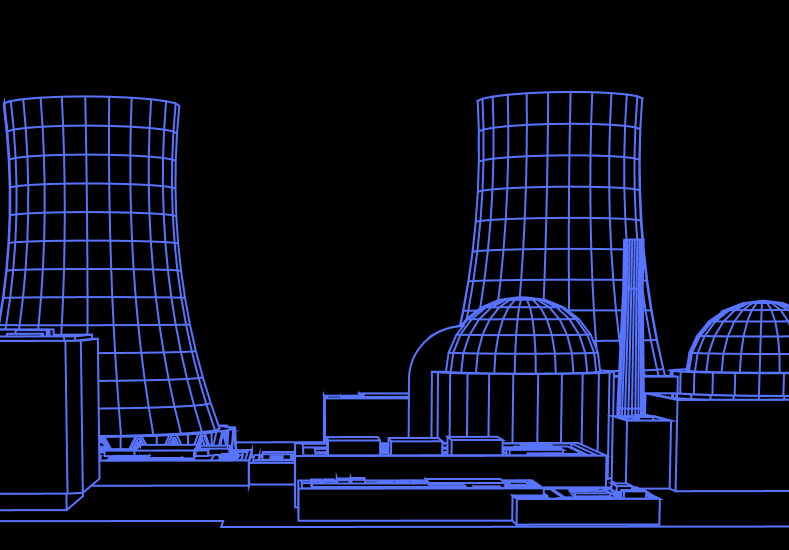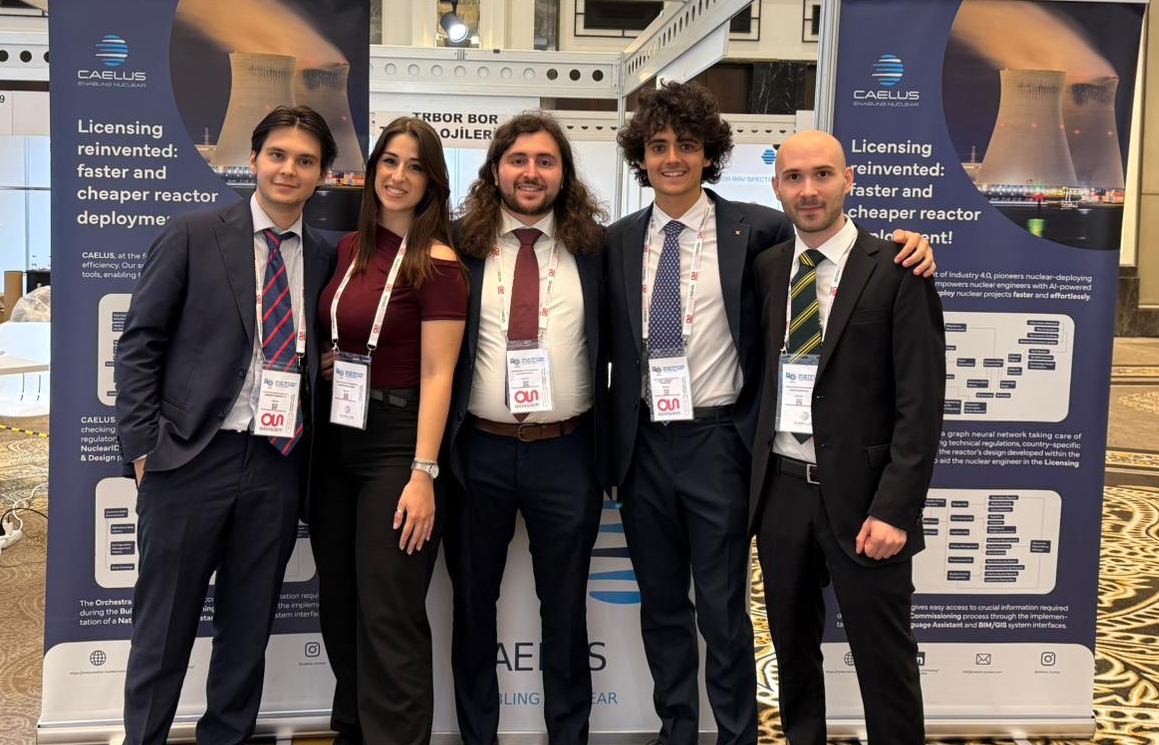How a start-up is rethinking the nuclear industry
How a start-up is rethinking the nuclear industry
When it comes to building a nuclear power plant, nothing is left to chance. That’s why the regulations surrounding the industry are among the strictest in the world. Meeting these requirements takes a lot of time and drives up costs. The Italian start-up CAELUS wants to change that. With the support of EuroCC Austria, the team has trained the world’s first AI model designed to handle administrative and regulatory tasks—freeing up engineers and technicians to focus on their core responsibilities.
Bettina Benesch
One of the biggest challenges in the nuclear sector is that highly specialised professionals such as engineers and physicists spend a significant portion of their time dealing with paperwork and regulatory requirements. While essential, this work often leads to heavy workloads, project delays, and soaring costs. In 2023, nuclear and energy engineer Alessio Iuvara decided it was time for a new approach.
He founded the start-up CAELUS with the aim of using AI to automate many of the time-consuming regulatory processes and documentation tasks. This would allow experts to return to their actual areas of expertise, while helping companies save both time and money. At the same time, Alessio was determined to contribute to the EU’s climate neutrality goals. We all know the ambition: the European Union aims to become the first climate-neutral continent by 2050. For Alessio, nuclear energy is part of the solution.
And his plan worked: today, he and his 15-person team are refining a comprehensive AI tool with various features and modules. Part of them are going to be released at the end of 2025 for Europe and in the months after also in other countries.

The tool performs four main tasks:
1
It processes all types of documents – such as Word files, images or text formats – and converts them into usable data,
3
optimises resource usage by automating repetitive, resource-intensive tasks, and
2
ensures an above-average level of safety through its own quality management approach,
4
monitors compliance with regulatory deadlines and oversees data processing.
How reliable can an AI model be?
As we’ve said: unreliability is a deal-breaker in the nuclear industry. But how do you build a highly secure AI model when it's common knowledge that AI in general—and large language models (LLMs) in particular—aren’t known for being the most dependable digital tools? The answer sounds simple, but it’s not: you build your own model, one that delivers maximum accuracy and traceable results. To do this, the team had to overcome three major challenges:
Challenge #1: trust in a regulated environment
Because the nuclear sector is governed by the strictest regulations, AI systems must be both precise and transparent—qualities that standard LLMs lack.
The solution: a multi-agent system made up of specialised, fine-tuned small language models (SLMs), each trained on specific regulatory and technical datasets.
Challenge #2: verification, validation, and quality assurance (VV&Q)
The AI tool consists of several modules, each with different functions. To ensure 100% reliability, each one requires its own VV&Q pipeline.
The solution: CAELUS is developing this pipeline to continually test, validate, and monitor each agent in the system.
Challenge #3: varying requirements across project phases
Every phase of a nuclear power plant’s lifecycle—planning, construction, and operation—presents unique challenges. These must be addressed accordingly.
The solution: the CAELUS team is building a modular ecosystem of applications tailored to each phase, so the right tools are available at the right time.
“
The collaboration with EuroCC Austria was an outstanding experience. Working with such skilled and dedicated experts is invaluable for a young start-up like ours. The EuroCC team’s support inspired us to push beyond our limits and reach new milestones.
„
Savings of up to €700,000 thanks to EuroCC Austria
The EU-funded EuroCC project enables start-ups and SMEs to access European supercomputers for free to run early-stage simulations or train AI models. CAELUS gained access to Austria’s Vienna Scientific Cluster (VSC) and initially received technical support. After the introductory training, the CAELUS team was able to run most of the training independently.
By using the VSC free of charge, the start-up saved an estimated €200,000 to €700,000, according to Lorenzo Tomassetti, Head of AI at CAELUS. This was possible because the company didn’t need to purchase its own servers or pay for energy or cloud services. The team also managed to reduce training cycles by 40% thanks to working on the VSC—bringing the product to market more quickly.
“The collaboration with EuroCC Austria was an outstanding experience,” says Lorenzo Tomassetti. “Working with such skilled and dedicated experts is invaluable for a young start-up like ours. The EuroCC team’s support inspired us to push beyond our limits and reach new milestones.”
About CAELUS
The deep-tech software start-up CAELUS S.r.l. follows a bold vision: to accelerate the development of new energy solutions using generative AI. To that end, it builds AI models designed to simplify time-consuming, document-heavy processes in highly regulated industries. Its main focus is on nuclear energy projects.
CAELUS tools are tailored to meet the needs of professionals in the nuclear sector: reactor designers, utilities, construction and engineering firms, project developers, and suppliers.
https://www.linkedin.com/company/caelus-nuclear/posts/?feedView=all
